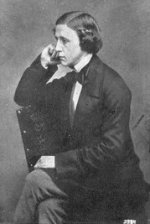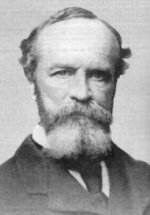If the title of this guest post is true, then you should read it.
[This originally appeared as a guest post that I wrote for Richard Chappell’s blog Philosophy, et cetera]
Here’s one of the few canonical philosophical puzzles that I had learned about by the age of five. What’s the truth-value of the following statement?
(L) This statement (L) is false.
The problem, of course, is that if (L) is true then it’s false, and if (L) is false then it’s true. Thus, any theory of truth that assigns a truth-value to (L) is internally contradictory, since the theory will (inter alia) include the contradictory truth-ascription:
(TL) L is true if and only if L is false.
Since there are no true contradictions, a theory of truth must not assign any truth-value to (L) at all. But how do you doing it? If a statement hasn’t got a truth-value, then the usual take is that they are, in some respect, nonsense; that is, they fail to make an assertion — just as “Cat mat on the sat the” fails to make an assertion. The canonical approach to (L) in the 20th century has been to try to come up with some principled means of ruling (L) out of the language by means of setting up the right structure of rules beforehand (just as you can point to the preexisting rules of syntax to show that “Cat mat on the sat the” doesn’t amount to a complete sentence). The most famous attempt, and the inspiration of many of the subsequent attempts, has been Tarski’s attempt to sidestep the Liar Paradox by means of segmenting language into object-language and meta-language layers. The idea being that, if you do this assiduously, you can avoid self-referential paradoxes because self-reference won’t be possible in languages whose sentences can be ascribed truth-values; because they can only be ascribed truth-values within a meta-language that contains the names of the object language’s sentences and truth-predicates for those sentences. I have a lot of problems with this approach; a full explanation of them is something that I ought to spell out (indeed, have spelled out) elsewhere. But here’s a quick gloss of one of the reasons: Tarski and the people inspired by him started setting up ex ante rules to try to rule out self-referential sentences because it’s self-reference that makes the Liar Paradox paradoxical (and that makes for similar paradoxes in similar sentences; exercise for the reader: show how “If this sentence is true, then God exists” is both necessarily true and strictly entails the existence of God). But there’s an obvious and general problem for the method: there are self-referential sentences which are unparadoxical, and indeed self-referential sentences which are true. Here’s an example which may or may not cause trouble for Tarskian theories, depending on the details:
(E) This sentence (E) is in English.
(E) is truth-valuable; and in fact it is true. (If, on the other hand, it had said “This sentence is in French,” it would have been false.) Now, this may cause trouble for the Tarskian method and it may not, depending on the details of a particular account. (Sometimes people want to ban all self-referential sentences; sometimes they are more careful and claim that object languages might be able to name their own sentences but only so long as they don’t contain the truth-predicates for their own language.) But even if (E) is allowed, you haven’t solved the problem. There are plenty of self-referential truth-ascribing sentences that aren’t paradoxical, too. Here’s one:
(EM) Either this sentence (EM) is true, or this sentence (EM) is false.
Unlike (L), this causes no logical paradoxes. If you suppose that it’s false, that means that it turns out to be true — since the second disjunct, “this sentence (EM) is false” turns out to be true; meaning that it cannot be false. But it can be true, without contradiction. So it has to be true, if it has any truth-value at all. That shouldn’t be surprising; it’s an instance of the law of the excluded middle, and all instances of the law of the excluded middle are true.
Now, you might think that (EM)’s relationship to ordinary talk is attenuated enough, and the reasons for thinking it unparadoxical are technical enough, that it might be an acceptable loss if some other technical stuff that saves us from (L) happens to rule out (EM) too. I’d be inclined to agree, except that (EM) isn’t the only example I had up my sleeve, either. Here’s another. In the Prologue to the Travels, Marco Polo wrote,
We will set down things seen as seen, things heard as heard, so that our book may be an accurate record, free from any sort of fabrication. And all who read this book or hear it may do so with full confidence, because it contains nothing but the truth.
Let M be the conjunction of all the assertions that Marco Polo makes in his book. The book contains nothing but the truth if and only if M is true, but that the book contains nothing but the truth is one of the many assertions in the book, so “M is true” is one of the conjuncts of M. Thus:
(M) This conjunction (M) is true, and Marco Polo traveled the Silk Road to Cathay, and served in the court of the Great Khan, and observed the barbarous customs of lesser Armenia, and … and … and ….
But it’s either true or false that Marco Polo’s book contains nothing but the truth; that assertion is a standard bit of understood language (passages just like it are a near-universal feature of traveler’s tales, or other extraordinary stories where the author feels the need to reassure you that she’s not making things up). If your theory of language throws it out as nonsense, then your “theory of language” needs to be thrown out, on the grounds that it’s not semantically serious. (Whatever it’s a theory of may be interesting, but it’s something other than language as it actually exists.)
Now, like Polo, I may have been fudging just a bit in what I said. I suggested that M isn’t paradoxical; I don’t think it is, but there is a way to make it seem paradoxical. Lots of readers have doubted that Polo was telling the truth; some of them, for example, were unimpressed by the evidence that he had ever served in the court of the Great Khan; others weren’t so sure about the tales of dog-headed men or giant birds that consumed elephants. Whatever the case, they believed that Marco Polo made at least two false assertions in his book: (1) the claim about his journeys that they doubted, and (2) the claim that his book contained nothing but the truth. Call these the normal skeptics. I’m sure there were also a few readers (however credulous they would have to have been), who believed that the Travels really did contain nothing but the truth; that is, that there were no false assertions in the book, including the assertion that the book contained no false assertions. Call these the normal believers. But now imagine a third kind of reader, a perverse skeptic — a philosopher, of course — who noticed that you could gloss the contents of the book as M, and who decided that she believed everything that Polo said in the book about his journeys, from the customs of lesser Armenia to the domains of the Great Khan to the giant birds. She believes everything in the book, except … there is one assertion that she thinks is false — that is, (1) the assertion that everything in the book is true, and nothing else.
There are a couple of different ways that you could approach the difficulty. One way is to point out that the perverse skeptic really is being perverse. That’s just not how you can sensibly read the book. Either you think that nothing in the book is false, or you think that at least two things are; the assurance of truthfulness just can’t be a candidate for falseness until something else has been shown false. But if you list the truth-conditions of M, then “M is true” is one among them, and it’s hard to see how you could stop the perverse skeptic from going down the list and picking that one as the only one to be false. Certainly Polo doesn’t say “The rest of the book besides this sentence contains nothing but the truth.” And given that he did say what he did, I’d be hard put to say that “this book contains nothing but the truth” isn’t one of the untruths denied by the sentence, if something else in the book is false.
Another way to approach it is this: you can imagine an argument between the normal skeptic and the normal believer; whether or not one ever managed to convince the other in the end, you can in principle identify the sorts of reasons that they might offer to try to determine whether Polo really did tell the truth about the birds, or about the Khan, or…, and you can say what things would be like if one or the other is true. But what kind of argument could the normal believer and the perverse skeptic have? How would one convince the other? Or, to take it beyond the merely psychological point to the epistemological point, what kind of reasons could the normal believer possibly give to the perverse skeptic to give up the belief that “this book contains nothing but the truth” is false? (She can’t point to all the true statements about his journey; the perverse skeptic already believes in those.) Or, to take it beyond the epistemological point to the ontological point: what sort of truth-makers could even in principle determine whether the normal believer or the perverse skeptic is in the right?
So there is a problem with M, to be sure. But the problem is not the same as the problem posed by L: there’s no logical contradiction involved, so its self-referentiality sets off no logical explosions. And the solution can’t be the same either: the radical move of abandoning the sentence as meaningless works with (L), where there’s just no right way to take it, but it doesn’t help us out with (M), where there obviously is a right way to take it (i.e., as the normal readers take it, and not as the perverse reader takes it).
So there has to be some right way to go about ascribing a truth-value to (M) (and also (E)). Whatever it is, it may very well also explain how we can ascribe a truth-value to (EM). But it certainly cannot also mean that we try to ascribe a truth-value to (L). What is it? Is there some kind of principled and motivated general rule that we can add to our logical grammar, so as to get M and E and maybe EM but no L? If so, what in the world would it be? If not, then what do we do?
(I have my own answers; for the details, you can look up Sentences That Can’t Be Said in the upcoming issue of Southwest Philosophy Review. Or contact me if you’re interested enough to want a copy of the essay. But I want to pose the puzzle and see what y’all think about it as it stands.)
Update 2005-12-08: I fixed a minor error in phrasing. Thanks to Blar for pointing it out in comments.



 Lewis Carroll,
Lewis Carroll, 